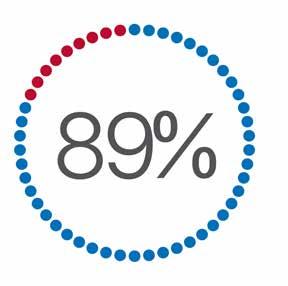




































Since its introduction in March 2015, the ICAV has established itself as the default structure for Irish investment funds, across all strategies and asset classes in both the retail and professional investor space.
The ICAV is a corporate vehicle tailored specifically for Irish investment funds, established by way of registration and authorisation by the Central Bank of Ireland (the “Central Bank”). As a corporate vehicle the ICAV has a distinct and separate legal personality, i.e. it may enter into contracts itself, can own property itself etc. The ICAV is represented by its board of directors which retains overall responsibility for managing the business of the ICAV.
The ICAV is similar to Irish funds established as investment companies but with the significant advantage that the ICAV was specifically created for the Irish funds industry, enabling it to be more flexible than the investment company. The ICAV legislation essentially drew upon the best and most successful aspects of Irish company law, improving it in several material respects. The advantage of this is that with its own specific legislative code, the ICAV will not be impacted by amendments to European / Irish company law (which are targeted at ordinary companies and not funds), protecting the ICAV from any unintended consequences of such legislative changes. The result is a more straightforward set of legal rules applicable to the ICAV, and lower administration and operating costs.
The ICAV is available as both an Undertaking for Collective Investment in Transferable Securities (“UCITS”) and Alternative Investment Funds (“AIFs”). The ICAV can operate as a standalone fund or as an umbrella fund with multiple sub-funds which automatically enjoy segregated liability between each sub-fund under the ICAV legislation.
The ICAV can be structured to suit all major investment strategies and can accommodate traditional as well as alternative investment policies. It can also avail of a full suite of liquidity options making it suitable for hedge funds, real estate funds, infrastructure strategies, lending vehicles, private equity funds, managed accounts and hybrid funds. ICAVs can also be established as part of global master-feeders, co-investment or joint-venture structures and use a full range of underlying special purpose vehicles and subsidiaries to hold investments.
The ICAV has established itself as the most popular vehicle for asset managers forming Irish funds. 45% of new Irish products launched during the period from July 2020 to June 2021* were ICAVs.
This is evenly split between UCITS and AIFs , which illustrates the suitability of the ICAV for both the retail and the professional investor space.
Managers have clearly been attracted by its flexibility and also the range of enhancements the ICAV offers over existing Irish fund structures.
89% of Irish funds authorised since March 2015 are ICAVs

Source: The Central Bank of Ireland, based on available data as at May 2022
Over US$472bn growth in ICAV AUM during 2021
* Source: Monterey Insight Ireland Fund Report, March 2022



No Risk Spreading Rules
ICAVs are not subject to legal risk spreading obligations, making them extremely useful for single asset funds and / or funds with very concentrated positions. However, ICAVs structured as UCITS are still subject to the principle of risk spreading and the diversification requirements under the UCITS Directives.
EEA Passport
Separate Sub-Fund Accounts
As the ICAV can be established as either a UCITS or an AIF structure, the ICAV can avail of the EEA UCITS and / or AIFMD marketing passports respectively.
Umbrella ICAVs can produce separate financial reports and accounts for sub-funds with differing year end dates (as opposed to one consolidated set of accounts for the entire umbrella). This has proven attractive for promoters of multi-manager or hosted platforms concerned by sensitivities in disclosing differing fee arrangements or portfolio compositions of individual managers within the same platform.
Tax Efficiencies
The ICAV will constitute an investment undertaking for Irish tax purposes and will be subject to the same gross roll-up regime that currently applies to existing Irish investment funds. For further tax features of the ICAV, please see the section Tax - Headline Points for ICAVs.
Ability To “CheckThe-Box” For US Tax Purposes
Efficient Constitutional Changes
An ICAV may elect to “check-the-box” and be treated as a pass-through entity for US federal tax purposes. For further tax features of the ICAV, please see the section Tax - Headline Points for ICAVs.
There is no requirement to obtain prior shareholder approval for changes to constitutional document of an ICAV, the Instrument of Incorporation, where the depositary of the ICAV certifies that the changes to the Instrument of Incorporation do not prejudice the interests of shareholders.
To reduce the administrative burden on funds, directors of an ICAV are permitted to elect to dispense with the holding of an Annual General Meeting (“AGM)” by giving written notice to all of the ICAV’s shareholders. There is a safeguard in that shareholders in the ICAV holding 10% or greater of shares can demand an AGM.
Unlike funds established as public limited companies, ICAVs are not required to publicly file annual reports with the Companies Registration Office (“CRO”). ICAV annual reports are only filed with the Central Bank and are not publicly available.
Over the past 30 years, the UCITS product has become increasingly popular as a liquid, transparent, diversified and robustly regulated investment product, establishing UCITS as an internationally recognised gold standard for retail investment funds.
UCITS are retail investment funds established and authorised pursuant to European Union law, as implemented in each member state of the EU. The sole permitted object of a UCITS scheme is the collective investment in transferable securities or in other liquid financial assets, of capital raised from the public, operating under the principle of riskspreading. UCITS are subject to asset eligibility and concentration limits with regard to the investments which they are permitted to make. Such restrictions are primarily designed to ensure adequate diversification and compliance with the principle of risk spreading. One of the key characteristics of UCITS is that shares / units thereof must be repurchased or redeemed, directly or indirectly, out of the scheme’s assets at the request of unitholders i.e. they must be open-ended.
Ireland is widely recognised as one of the world’s leading international fund centres for domiciling and servicing UCITS. Irish UCITS are capable of being registered for sale to the public not only throughout the EU (via the UCITS passport) but now across more than 70+ countries worldwide. For further details please refer to our Global Registration Services Guide to Marketing UCITS and AIFs through the European Passports.
Traditionally the investment company was the default vehicle of choice for structuring Irish UCITS. However since the introduction of the ICAV, the vast majority of UCITS have been authorised as ICAVs with asset managers welcoming the positive impact of the lower operating costs on the fund’s total expense ratio.
For further details on the UCITS product please refer to UCITS - A Guide for Asset Managers.
June 2016 THE LAST TIME AN UMBRELLA UCITS WAS AUTHORISED AS A PLC
The QIAIF (qualifying investor alternative investment fund) is Ireland’s flagship AIF. The QIAIF is the most adaptable category of Irish regulated fund and is the structure used most frequently for hedge funds, fund of hedge funds, private equity funds, managed account platforms, real estate funds and master-feeder structures.
AIFs structured as ICAVs are not bound by any equivalent to the UCITS harmonised investment restrictions and represent a more flexible option for managers. The investment restrictions are instead set according to the target investor type, with the certain restrictions applicable to funds targeting retail investors, i.e. RIAIFs and are entirely disapplied for funds targeting professional and institutional investors, i.e. QIAIFs.
As was the case with UCITS, QIAIFs historically were predominantly established as investment companies, but the emergence of the ICAV structure has been a significant game changer for the QIAIF product. The additional structuring flexibility of the ICAV has proven a perfect fit, with the vast majority of QIAIFs authorised since March 2015 having been established as ICAVs.
QIAIF ICAVs may be structured as open-ended, open-ended with limited liquidity, limited liquidity or closed-ended schemes. Gates, deferred redemptions, holdbacks, in-kind redemptions and side-pockets can all be facilitated.
ICAV QIAIFs are permitted to be marketed to professional investors via the AIFMD marketing passport.
For further details on the QIAIF product please refer to QIAIFs - A Guide for Asset Managers.
No Withholding Tax No withholding tax on dividend or redemption applies on payments to non-Irish investors or certain Irish resident exempted investors.
Tax Treaty Access Under Irish law, the ICAV is a body corporate with separate legal personality. As such, the ICAV may be entitled to benefit from the provisions of Ireland’s double tax treaties, subject to the provisions of each treaty and the rules in the relevant treaty partner country in each case.
VAT Exemptions
The provision of certain standard services to ICAVs (e.g. investment management, administration, transfer agency, depositary etc.) are treated as VAT exempt in Ireland. In general, the activities of ICAVs are considered to be VAT exempt, however, the funds may be required to register for VAT if they receive taxable services from outside Ireland under the reverse charge VAT rules. To the extent that the ICAV incurs Irish VAT on certain services it receives (e.g. audit and legal fees), it may recover a portion of this VAT based on its recovery rate.
Stamp Duty and Subscription Taxes
No stamp duty is payable in Ireland on the issue, transfer, repurchase or redemption of shares in an ICAV. No subscription taxes are levied by the Irish tax authorities on the assets of an ICAV.
Exchange of Information
Ireland is fully compliant with the OECD Global Forum on Transparency and Exchange of Information for Tax Purposes. Ireland has implemented the US FATCA regime, the OECD common reporting standard (“CRS”) and Council Directive (EU) 2018/822 on mandatory disclosure for cross-border transactions (“DAC6”). ICAVs are thus capable of complying with international FATCA and CRS requirements. Provided the ICAV complies with its FATCA obligations, no FATCA withholding should apply on payments from US sources.
US “Check-the-Box” Options
Perhaps one of the most significant advantages of the ICAV relates to its tax treatment for US purposes. The ICAV may elect to “check-the-box” to be treated as a tax transparent partnership or a “disregarded entity” (rather than an opaque “per se corporation”) for US federal tax purposes.
Compliance Requirements
PAYE
ICAVs are obliged to register with the Irish Tax Authorities to obtain a tax reference number and each ICAV must file a bi-annual tax return with the Irish Tax Authorities.
Remuneration arising from the office of director of an Irish incorporated company, including ICAVs, is subject to the Irish income tax PAYE system of deductions at source, irrespective of where the director is resident or domiciled for tax purposes. An exemption may be available if the director in question has obtained a PAYE Exclusion Order.
The establishment of an ICAV in a master/feeder structure offers a genuine global distribution solution for asset managers. A master/feeder ICAV structure (as opposed to an investment company structure) permits a combination of transparent and opaque/blocker funds to suit the needs of US taxable investors seeking tax transparency but at the same time retaining the structure's ability to access Ireland’s extensive range of double taxation treaties.
The establishment of an ICAV in a master-feeder structure offers a genuine global distribution solution for asset managers. A master-feeder ICAV structure (as opposed to an investment company structure) permits a combination of transparent and opaque / blocker funds to suit the needs of US taxable investors seeking tax transparency but at the same time retaining the structure’s ability to access Ireland’s extensive range of double taxation treaties.
As part of a global master-feeder structure, the ICAV can offer the “onshore” EU funds (availing of the AIFMD marketing passport for distribution in the EEA) and the “offshore” funds in Cayman / BVI parallel investment opportunities to US and global investors (who are more familiar with these vehicles / jurisdictions).
A sample ICAV global master-feeder structure is set out below.
As part of a global master-feeder structure, the ICAV can offer the "onshore" EU funds (availing of the AIFMD marketing passport for distribution in the EEA) and the "offshore" funds in Cayman / BVI parallel investment opportunities to US and global investors (who are more familiar with these vehicles/jurisdictions). A sample ICAV global master-feeder structure is set out below.

The Maples Group has unrivalled expertise in the structuring, establishment, ongoing operation and distribution of ICAVs.
We advised on the very first ICAV registered and authorised by the Central Bank and also worked on a number of other innovative ICAV launches, including the first UCITS ICAV, the first private client ICAV and the first redomiciliation. We are the leading Irish counsel on ICAVs and to date have advised on approximately 32% of all ICAV funds
authorised by the Central Bank, which is almost three times as many as our nearest competitor.
This position provides us with an unparalleled overview of the Irish market and enables us to track all relevant information and statistics on the ICAV structure.
They are outstanding on international aspects...
Commercially minded, aware of new developments and very proactive…
They have great strength in handling country registrations and all aspects of maintaining all regulatory filings...
CHAMBERS GLOBAL
Maples is a global titan in the investment funds arena...

...regarded by some as being ‘the best in Dublin’...
Exceptional knowledge of the investment funds industry sector...
LEGAL 500
Partners and associates are technically excellent and can be relied on for practical and sound business advice...
The team at Maples is outstanding...
Leading Irish firm advising on funds & investment management, often being the first to implement new products...
Given our position as the leading legal advisor in the ICAV space, we have gained valuable insights into how managers are utilising the ICAV structure.
The ICAV has gained significant traction with fund platform and / or managed account promoters. Over 90% of all authorised ICAV funds have been established within umbrella platforms. While this is a high percentage, it is not a surprising statistic. We have seen a noticeable trend towards the emergence of the “hosted AIFM” model. Small to mid-size managers without the scale to absorb the costs of complying with AIFMD are attracted by the “plug and play” solution offered by the hosted AIFM model. The manager’s sub-fund, which is its own segregated cell within the umbrella, simply slots into the existing corporate architecture of the platform removing much of the regulatory burden from these managers, enabling them to focus solely on the management of the assets.
There has also been a noticeable trend towards the externally managed UCITS model largely as a result of the increased regulatory burden and substance requirements being placed on self-managed UCITS. In fact, since the Central Bank introduced its new substance and governance requirements in late 2015, less than 20% of authorised UCITS were established as self-managed structures. The external UCITS management company now prevails.
The ICAV is the most commonly used vehicle for Irish loan origination funds (“LQIAIFs”) and for the structuring of hybrid lending and credit strategies. We have advised on the establishment of a number of bespoke hybrid lending and credit fund ICAV umbrella platforms, offering investors a blended exposure to (i) credit and loan investments in one ICAV sub-fund, and (ii) indirect exposure to loan-origination activity in another sub-fund of the same ICAV. For further details, please refer to our Guide Loan QIAIFs - Irish Regulated Direct Lending Funds.
In addition, the ICAV regime has proved itself flexible enough to accommodate many private equity type strategies and features (such as capital commitment / drawdown mechanisms, distribution waterfalls, carried interest and “excuse and exclude” allocations of assets). Some significant global players in the real asset space have established ICAVs in the private equity, real estate and infrastructure strategies. However, since the reform of the Irish limited partnership (“ILP”) regime, as well as the historic preference for the limited partnership as the preferred legal form of a private equity fund, we anticipate that the ILP shall become the default Irish vehicle for these funds. For more information on the ILP, please refer to The Irish Investment Limited Partnership - A Guide for Asset Managers.
Is the ICAV available as a vehicle for both UCITS and AIFs?
Can I convert my existing UCITS / AIF into an ICAV?
Yes, an ICAV can be authorised by the Central Bank as a UCITS or an AIF.
Yes, UCITS and / or AIFs established as an Irish investment company may convert into an ICAV by way of continuation. The conversion process requires shareholder approval and the directors of the investment company are required to make a statutory declaration confirming, amongst other matters, the solvency of the investment company. The conversion is then effected by way of an application to the Central Bank.
Can funds re-domicile to Ireland to take advantage of the ICAV corporate form and beneficial tax treatment?
Yes, the ICAV legislation allows for the registration of an eligible migrating company with the Central Bank as an ICAV by way of continuation, i.e. keeping its performance track record. Funds can migrate from Bermuda, the British Virgin Islands, the Cayman Islands, Guernsey, Jersey and the Isle of Man.
Is the ICAV subject to Irish tax? The ICAV will constitute an investment undertaking for Irish tax purposes and will be subject to the same gross roll-up regime that currently applies to existing Irish investment funds, AIFs and UCITS. Broadly, this means that any profits and gains of the ICAV will be exempt from tax in Ireland subject to certain conditions.
What are the check-the-box rules? The check-the-box rules are a set of US federal tax rules which govern the classification of non-US entities (including Irish funds). These rules are only relevant where the ICAV has a connection with the US (e.g. US investors and / or in certain circumstances, US investments).
Dublin
Adam Donoghue Partner, Co-Head of Funds & Investment Management
+353 1 619 2041 adam.donoghue@maples.com
Eimear O’Dwyer Partner, Co-Head of Funds & Investment Management
+353 1 619 2065 eimear.o’dwyer@maples.com
Caitriona Carty Partner
+353 1 619 2157 caitriona.carty@maples.com
Stephen Carty Partner
+353 1 619 2023 stephen.carty@maples.com
Ian Conlon Partner
+353 1 619 2714 ian.conlon@maples.com
Ronan Cremin Partner
+353 1 619 2756 ronan.cremin@maples.com
John Gallagher Partner
+353 1 619 2073 john.gallagher@maples.com
Frances Hamilton Partner +353 1 619 2069 frances.hamilton@maples.com
Philip Keegan Partner +353 1 619 2122 philip.keegan@maples.com
Deirdre McIlvenna Partner
+353 1 619 2064 deirdre.mcilvenna@maples.com
Aaron Mulcahy Partner
+353 1 619 2104 aaron.mulcahy@maples.com
Niamh O’Shea Partner
+353 1 619 2722 niamh.o’shea@maples.com
Peter Stapleton Managing Partner +353 1 619 2024 peter.stapleton@maples.com
Emma Conaty Head of Global Registration Services
+353 1 619 2708 emma.conaty@maples.com
Declan McHugh Senior Vice President, MPMF +353 1 697 3215 declan.mchugh@maples.com
London
Fearghal De Feu Partner
+44 20 7466 1714 fearghal.defeu@maples.com
Cayman
Pádraig Brosnan Partner +1 345 814 5441 padraig.brosnan@maples.com
James Meehan Partner +1 345 814 5311 james.meehan@maples.com
Hong Kong
Ann Ng Partner, Head of Funds & Investment Management +852 3690 7475 ann.ng@maples.com
. The Maples Group is a leading service provider offering a comprehensive range of legal services on the laws of the British Virgin Islands, the Cayman Islands, Ireland, Jersey and Luxembourg and is an independent provider of fiduciary, fund services, regulatory and compliance, and entity formation and management services. We distinguish ourselves with a client-focused approach, providing solutions tailored to your specific needs. Our global network of lawyers and industry professionals are strategically located in the Americas, Europe, Asia and the Middle East to ensure that clients gain immediate access to expert advice and bespoke support, within convenient time zones.

